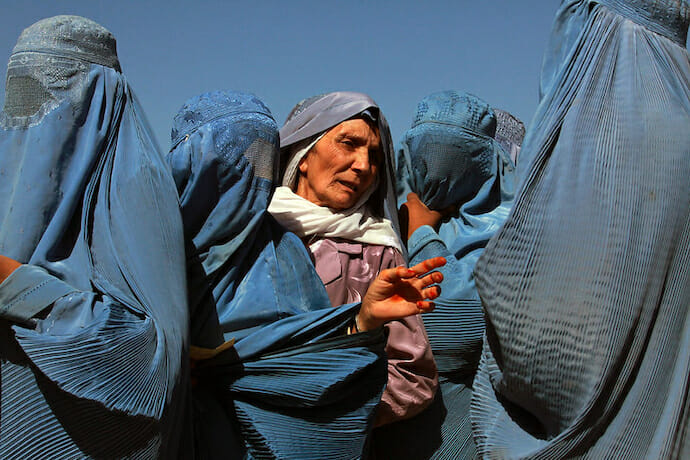The Platform
Latest Articles
by Ismaila Biliaminu Manne
by Ismaila Biliaminu Manne
by Arth Agarwal
by Sohail Mahmood
by Sehr Rushmeen
by Iqra Awan
by Areesha Anwer
by Abdul Mussawer Safi
by Punsara Amarasinghe
by Kanan Heydarov
by Ismaila Biliaminu Manne
by Ismaila Biliaminu Manne
by Arth Agarwal
by Sohail Mahmood
by Sehr Rushmeen
by Iqra Awan
by Areesha Anwer
by Abdul Mussawer Safi
by Punsara Amarasinghe
by Kanan Heydarov
The Banality of Evil: Systemic Betrayal of the Afghan People
Niccolò Machiavelli, an influential medieval political scholar, in his book, The Prince, said that man is selfish, ungrateful, false, covetous, and fickle. He also happens to be the first scholar to establish that the reality of politics is often unethical and entirely guided by man’s interest in power. While severely criticised for his “political realism” then, one can scarcely contest the veracity of his claims now.
With the withdrawal of U.S. and coalition troops from Afghanistan, conditions in the perpetually conflicted country have taken a turn for the worse. The Doha agreement has legitimized the Taliban as a key player in Afghanistan’s future. As the Taliban have captured province after province, the local population bears the maximum brunt of the violence.
Afghan youth, which make up roughly 63% of the population, have been promised democracy and development by all major stakeholders. Over the last few years, education and employment opportunities had improved. Of significance, are educational opportunities for women and girls and efforts to stop child marriages. Afghan girls often become mothers by their teen years. Between 2005 and 2017, adult literacy rose to 35%, with youth literacy rising to 54%. However, the literacy rate for men currently stands at 55% and for adult women, it’s only 29.8%. While this remains significantly low, Afghanistan has made significant progress considering where it stood decades ago. With the Taliban regaining its lost footing, Afghan youth are looking at a betrayal of all their ambitions and aspirations.
With the Taliban capturing significant parts of the country, what should have made headlines were the steps taken by the Taliban in the areas they control. Within days of acquiring power, the Taliban has declared rules which are regressive at best and preposterous at worst. Women were asked to not step out of their homes and prohibited from working. Men were asked to grow beards and the Taliban have also set out new dowry regulations. People have no choice but to accept these unreasonable diktats as the Taliban sets the table for its own brand of Islamic rule. According to a survey conducted by the Asian Foundation, the majority of Afghans are unwilling to accept a peace agreement that results in women and girls no longer being able to attend school.

Recently, a devastating blast at a girl’s school in Kabul and several instances of bombings and shelling that resulted in numerous deaths by the Taliban gave a glimpse of what was to come if the Taliban was given a seat at the negotiation table. This, however, did not deter Western countries from vacating Afghanistan at this fragile juncture.
The latest Taliban decree is nothing short of disturbing – it directed that “All imams and mullahs in captured areas should provide the Taliban with a list of girls above 15 and widows under 45 to be married to Taliban fighters.” This has led to widespread fear among Afghans about the safety and future of their young girls who risk being abducted and forced into sex slavery. The recent abduction of the daughter of an Afghan envoy to Pakistan with reports of her being severely tortured shakes one’s conscience. The fact that the news was taken in a business-as-usual approach justifies Machiavelli’s assessment of the fickle human mind.
The concept of the banality of evil was introduced by Hannah Arendt in her assessment of Adolf Eichmann, a prominent Nazi official. Evil becomes banal when “ordinary people participate in it, build distance from it or justify it.” The evil which the Taliban is beginning to inflict on Afghans is par for the course for the group and Afghans have no choice but to accept their new reality.
This won’t be the first time where people have distanced themselves from atrocities committed in conflict-ridden countries. The United Nations Central Emergency Response Fund has a funding vertical wherein it releases funds for what are known as “forgotten/neglected crises”- catastrophes that have gone off the global radar like the situation in Sudan, the Democratic Republic of Congo, Nigeria, and the list goes on. This does not happen because of the improvement of the availability of food, clothes, or medicines but simply because it ceases to prick the global conscience after a certain period of time. Instead of effecting political changes by collectively finding solutions, such situations have been normalized, and the fact that another country has initiated peace negotiations with a widely known terrorist outfit only justifies “the banality of evil.”
The predicament of the millions who have been violated and exterminated is largely due to the political whims of oligarchies across the world and the mute witnesses who continue to give it an unthinking character bereft of identity. This is precisely what Arendt described as the “dehumanization” of people at large.
Tanya Vatsa is a law graduate from National Law University, Lucknow India. Currently a Gandhi Fellow with a year and a half experience as an assistant advocate.
